Practice Area
Class & Collective Actions
Your voice to
Protect groups of workers impacted by unfair wage practicesAt Frankel Syverson PLLC, we understand the challenges employees face when their rights to fair compensation are violated. Our experienced team of employment lawyers is dedicated to helping workers recover unpaid wages through class and collective actions. If you believe you and your fellow employees have been subjected to wage and hour violations, we are here to advocate for your rights.
Our firm has successfully represented workers in a variety of industries, including healthcare, hospitality, retail, construction, and service industries, in claims involving:
Unpaid minimum wage
Unpaid overtime wages
Off-the-clock work
Illegal tip pooling
Unlawful deductions and delayed wage payments
Misclassification of employees as independent contractors or exempt
We know how to build effective collective and class claims by gathering comprehensive evidence, identifying common employer practices, and coordinating group claims under both Arizona wage laws and the FLSA.
What are Class and Collective Actions for Unpaid Wages?
Class and collective actions are legal mechanisms that allow an employee to act as the representative of other employees and pursue claims on their behalf to help them recover in the lawsuit as well.
- Class actions are filed under state law, such as the Arizona Wage Statute (A.R.S. §23-351) or Arizona Minimum Wage Statute, when employees share common legal claims.
- Collective actions are filed under the FLSA (29 U.S.C. § 216(b)), allowing employees to "opt in" and join a federal lawsuit involving similar unpaid wage claims for overtime or minimum wage.
These actions increase legal efficiency and amplify the impact on employers engaging in widespread wage violations.
Why Choose a Class or Collective Action?
Pursuing a group claim through a class or collective action offers important advantages:
- Strength in Numbers: Combining resources and evidence makes it easier to prove systemic wage violations and patterns of unlawful behavior.
- Increased Leverage: Group claims pressure employers into meaningful settlement negotiations and deters future violations.
- Broader Impact: A successful class or collective action can result in company-wide policy changes that benefit both current and future employees and ensure the employees impacted by the unlawful practice receive a remedy from the lawsuit.

Examples of Cases
Our employment attorneys can represent Arizona employees in collective and class claims involving matters such as:
Restaurant servers and bartenders denied overtime and subjected to unlawful tip pooling practices.
Retail workers required to perform unpaid pre-shift and post-shift duties off the clock.
Healthcare aides misclassified as exempt from overtime eligibility and denied pay for additional hours worked.
Call center employees forced to log into systems and perform setup tasks before being allowed to clock in.
How Our Attorneys Can Help You
At Frankel Syverson PLLC, we offer guidance through the legal process of recovering unpaid wages:
Initial Consultation: We evaluate your specific situation and explain your legal options regarding unpaid wages.
Documentation Review: We help assess your employment records, pay stubs, and other relevant documentation.
Legal Representation: Our attorneys handle the legal aspects of your wage claim, from filing necessary paperwork to representing you throughout the process.
Pursuing Available Remedies: We seek all legally available remedies, which may include unpaid wages and potential liquidated damages in certain cases.
Understanding Your Legal Options
Class actions in Arizona wage cases may be filed when numerous employees are affected by the same wage violation.
Collective actions are authorized under 29 U.S.C. § 216(b) of the FLSA, which allows workers to "opt in" to a group case for unpaid minimum wage or overtime violations.
Participants in a class or collective action may be entitled to unpaid wages, liquidated damages (doubling the amount owed), statutory penalties, interest, and attorneys’ fees.
Frequently Asked Questions (FAQs)
What is the difference between a class action and a collective action?
A class action is typically filed under Arizona law for state wage violations and covers all employees in a defined group unless they opt out. A collective action is filed under the FLSA and requires employees to affirmatively opt in to participate.
What kinds of wage violations qualify for a class or collective action?
Common violations include unpaid minimum wages, unpaid overtime, off-the-clock work, unlawful deductions, improper tip pooling, and employee misclassification.
Will participating in a class or collective action affect my job?
Federal labor law prohibits employer retaliation against employees who assert their legal rights by participating in a collective action for unpaid overtime or minimum wage. Arizona law prohibits retaliation against employees who assert claims for unpaid minimum wage. There may be other protections as well, so if that’s a concern, talk to a lawyer.
What compensation can I recover in a class or collective action?
Employees may recover unpaid wages, liquidated damages (equal to the unpaid wages), interest, penalties, attorneys’ fees, and court costs.
If you and your fellow employees have been subjected to unfair wage practices, you have the right to take collective legal action.
Frankel Syverson PLLC’s employment attorneys have the experience and resources to guide you through the process and fight for the compensation you’re owed.
Contact us today to schedule a consultation and take the first step toward reclaiming what you are owed.











